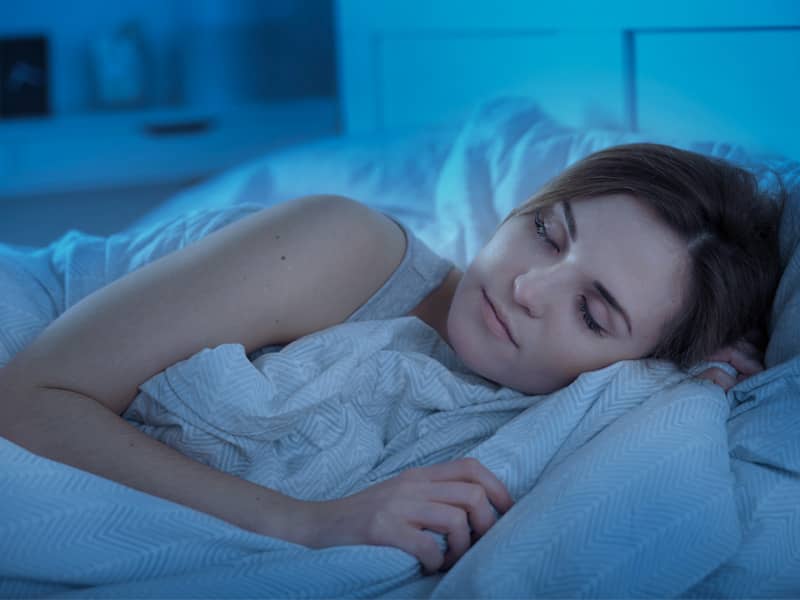In the weeks just after the September 11 attacks, churches, mosques, and synagogues across the country welcomed standing-room-only crowds.
According to a Gallup Poll taken 10 days after the attacks, 47 percent of adult Americans said they had attended church or synagogue the previous week--the highest church attendance since the 1950s.
Franklin Graham, head of the Billy Graham Evangelistic Association, believed Americans were committing themselves to God in an "enduring" way, and Christian broadcaster Pat Robertson heralded this time as "one of the greatest spiritual revivals in the history of America."
But, in fact, the Great Awakening has not materialized--and there is now some evidence that Americans are turning more to secular means to deal with the spiritual and emotional aftermath of 9/11.
November polls by both Gallup and Barna Research reported that church attendance had dropped back to "normal levels." And Barna specifically found that Bible reading, praying, participating in small groups like Christian fellowship remained the same as prior to the terrorist attacks. Participation in adult Sunday school was up slightly, but not enough to be statistically significant, and the number of church volunteers, which spiked after the attacks, has declined to the pre-9/11 level.
George Barna, who directed the study, even chided Christian churches for having missed an incredible opportunity "to instigate serious transformation in people this year."
While religious activity seems to be returning to normal, it's not because Americans have gotten over the trauma of the attacks.
Barna Research Group found that in August, 73 percent of Americans were "concerned about the future." In November, that number rose to 82 percent. Directly after 9/11, close to half of all Americans (44 percent), according to a Rand Corporation/University of California at Los Angeles study, experienced "substantial stress reactions" (feeling irritable, angry outbursts). They also experienced difficulty sleeping or did not feel rested when they woke up in the morning.
But there's evidence that in order to pull themselves out of their spiritual funk, Americans seem more inclined to turn to drugs, alcohol and other secular tools.
For instance, there's been an increase in sales of certain prescription drugs. Figures released by NDC Health, a health-care information service company, based in Atlanta, Georgia, show that the number of new prescriptions for antidepressants, such as Prozac and Paxil, spiked about 5 percent over pre-9/11 figures the first week of November. New prescriptions for both anti-anxiety medications, such as Xanax, Valium, and Klonopin, and for sleeping aids saw their highest peak--11 percent and a little more than 50 percent, respectively--in early October.
Overall drug usage is up nationwide with total prescriptions--new and refills--for the week of November 23 far above those for the same week last year. Sales of tranquilizers have risen 4.5 percent, but the other two categories showed increases of 14 and 16 percent.
Alcohol consumption is also up in New York City, according to a recent New York Times report, and the National Center on Addiction and Substance Abuse released a report stating that 13 states and four major cities--including New York and Washington, D.C.--have detected a higher demand for drug and alcohol treatment since 9/11.
"The Americans who are using drugs and alcohol to cope, or have relapsed from sobriety after the national tragedy, are the forgotten victims of September 11th," said Joseph Califano, the group's director.
The Surgeon General recently predicted increases in depression and suicide in the cities directly affected by the attacks, namely New York, Washington, and western Pennsylvania.
After the Oklahoma City attack, officials saw a big increase in people seeking psychological counseling. Project Heartland, a special mental health unit set up by the state department of mental health and substance abuse services, saw demand for their services rise steadily for the year after the attack, says Rosemary Brown, the communication director.
Why are people more inclined to turn to turn to drugs, booze, and therapy than to church, prayer, and meditation?
In part, what people are craving even more than spiritual answers is normalcy--and that means returning to whatever they were doing before. Episcopal priest and pastoral counselor Gary Hellman sees the folks who flocked to churches after 9/11 as the same ones who make Christmas and Easter services bulge. But "people want to normalize." If they were not religious before, "normal" means not religious now.
Henry Brinton, senior pastor of Fairfax, Virginia, Presbyterian Church, is not surprised that Americans might choose to self-medicate with alcohol and drugs, but as a pastor he has mixed feelings about it.
"Medication can make us feel better, but it can't help remove the uncertainty we're facing today," he says. "A community of faith truly is a place of stability in an uncertain world. Whereas a tablet of Prozac simply changes your brain chemistry...allows you feel more serene, it doesn't truly create serenity."
But many see a variety of forces pushing people away from seeking solace in houses of worship. According to Yale law professor Stephen Carter, contemporary America displays a strong current of cultural resistance to meaningful faith. In his book, "The Culture of Disbelief," he laments that our society "seems to take the position that believing deeply in the tenets of one's faith represents a kind of mystical irrationality, something that thoughtful, public-spirited American citizens would do better to avoid."

